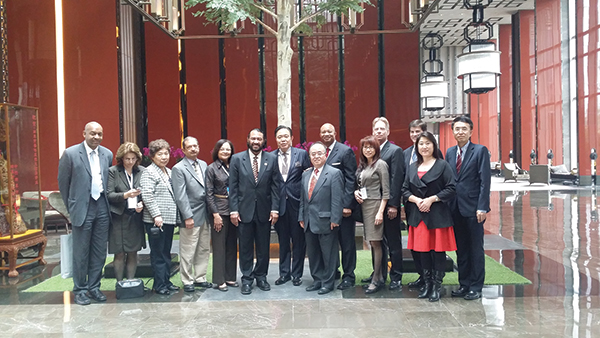Cranes, cranes and more cranes was my first thought when I arrived in China. I was there on a trade mission with U.S. Congressman Al Green this past April. The trip’s purpose was to meet with and familiarize Chinese investors about purchasing real estate and investing in Houston and the state of Texas versus other markets. We visited seven cities in nine days.
We toured Beijing, Tianjin, Qu Fu, Heze, Zhengzhou, Xian and Shanghai. Most apparent to me were all the cranes and the building going on in all seven cities. The Chinese government owns the land, so a citizen can only “lease” the land in 70- to 90-year lease increments. There are very few single family residences; most people live in high-rise buildings and in townhomes. A 70 percent down payment is required to “purchase” a residence. This is in effect to try and help slow down the rapid price appreciation because of the present housing boom in China. The Chinese government is trying to prevent a housing bubble.
The housing units are very expensive there. Two million U.S. dollars “buys” an 800-square-foot residence. The government is trying to force some populations to the rural areas and suburbs we visited to ease the rapid population growth in the cities. The high-rise building is king in China — even in the suburbs. We visited several developments that are currently being built. There is one where they are duplicating Beacon Hill in Boston; another development is large town home complexes on lake front properties. We were able to meet approximately 50 to 100 millionaires and a few billionaires and discuss the advantages of investing in Houston and Texas. We had the opportunity to explain that, once you buy properties here, you have many of the same rights as American citizens in regards to real estate investments.
Also on the trade mission was Damon Lin of Fidelity Title, who explained the transaction process in Houston. Kenneth Li and Elizabeth Collins were part of a commercial real estate delegation. I believe we made some inroads, but only time will tell. What was apparent to me was that for any long-term business development to occur, we need to build stronger relationships, just like with any other real estate client, here or abroad.
Guest Author: Shadrick Bogany, 2013 TAR Chairman, 2002 HAR Chairman


